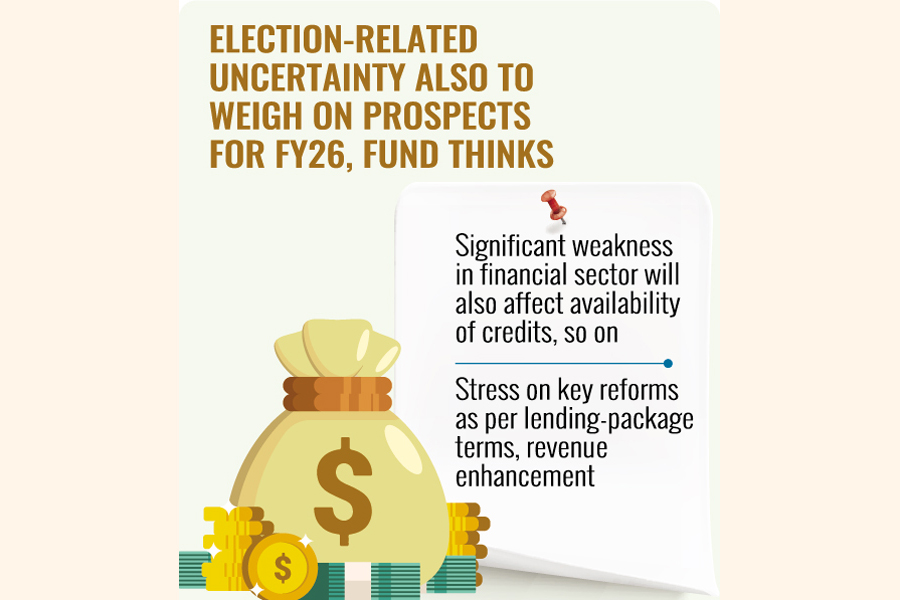
Published :
Updated :

The International Monetary Fund (IMF) has cited three major reasons for downward revision of Bangladesh's GDP-growth prospect for this fiscal year, including a pass-through ambience of uncertainty.
"I think there are three reasons, one of course is the policy mix has been tighter, the second tariffs, and uncertainty have played a big role," said Krishna Srinivasan, Director, IMF's Asia-Pacific Department, at a press conference on the Regional Economic Outlook for Asia-Pacific, held Thursday in Washington.
Mr Srinivasan was replying to a question from the Financial Express regarding the reasons behind the downgrading of the growth projections for Bangladesh in its World Economic Outlook for October.
In the October outlook, the IMF said Bangladesh's economy may grow by 4.9 per cent in the fiscal year 2025-26 against its earlier projection of 5.4 per cent, made in June last.
In addition to three reasons, Mr Srinivasan points out three other uncertainties which are bearing on Bangladesh's economic prospects.
"One is the upcoming election-related uncertainty associated with that which will have a bearing on prospects and the second thing I would say is that there's significant weakness in the financial sector which will affect availability of credit and so on," he says.
On inflation, he says, the IMF has projected inflation at 8.7 per cent by the end of FY26, and "that's primarily driven by supply-side shocks earlier this year".
For the FY26, the IMF forecasts 6.2 per cent in June but in October revised it upward. Mr Srinivasan also replied a query on Bangladesh's performance in conducting reforms under terms of the IMF's US$5.5-billion credit programme.
"Bangladesh needs to continue with the key reform areas on fiscal where revenue mobilisation is a key part of the reform adjustment and the second is on financial sector," he said.
"These are key aspects which we'll be looking at as part of the review which will be forthcoming," he added.
syful-islam@outlook.com


 For all latest news, follow The Financial Express Google News channel.
For all latest news, follow The Financial Express Google News channel.